|
How do you get fiction editing and proofreading work? This post offers some pointers for newbie freelancers, and experienced editors looking to shift specialisms.
1. Start with baseline training
To be fit for working in any editing discipline, fiction or otherwise, training is the foundation. Even if you’ve been devouring your favourite genres for years, you need to understand publishing-industry standards. This isn’t about snobbery. It’s about serving the client honestly and well, especially the self-publisher, who might not have enough mainstream publishing knowledge to assess whether you’re capable of amending in a way that respects industry conventions. It’s about the reader too. Readers are canny, and often wedded to particular genres. They’re used to browsing in bookshops and bingeing on their favourite authors. They have their own standards and expectations. One of our jobs as editorial professionals is to ensure we have the skills to push the book forward, make it the best it can be, so that it’s ready for those readers and meets their expectations. And so if you want to proofread or edit for fiction publishers and independent authors, high-quality editorial training isn’t a luxury: it’s the baseline. What kind of training you need will depend on what services you plan to offer.
Courses
I recommend the Publishing Training Centre and the Chartered Institute of Editing and Proofreading (CIEP) for foundational copyediting and proofreading training. I’m based in the UK, and those are the two training suppliers I have experience of so I’m in a position to recommend them. That doesn’t mean that other suppliers aren’t worth exploring. Rather, I don’t recommend what I haven’t tested. Keep an open mind. Check a range of suppliers and their course curricula. Then choose what suits your needs.
If you want more information about how the PTC and CIEP courses compare, talk to the organizations’ training directors. 2. Decide which fiction editing services you want to offer Some beginner self-publishers don’t understand the differences between the different levels of editing, which means they might ask for something that’s not in their best interests (e.g. a quick proofread even though the book hasn’t been critiqued, structurally edited, line- and copyedited). It’s essential that the professional fiction editor is able to communicate which levels of editing they provide, and recommend what’s appropriate for the author. That doesn’t mean the author will take the advice, but the editor must be able to articulate her recommendations so that independent authors can make informed decisions.
3. Invest in appropriate specialist fiction training
The next step is to gain skills and confidence with fiction editing and proofreading work. As with any type of editing, the kinds of things the editor will be amending, querying and checking will depend on whether the work is structural, sentence-based or pre-publication quality control. When deciding what specialist fiction editing courses to invest in, bear in mind the following:
Courses and reading Explore the following to assess whether they will fill the gaps in your knowledge. Check the curricula carefully to ensure that the modules focus on the types of fiction editing you wish to offer and provide you with the depth required to push you forward.
This isn’t a definitive list but it’ll set you on the right track.
4. Get in the right mindset
Fiction editing requires a particular mindset for several reasons: Style and voice We’re not only respecting the author, but the POV character(s) too. The fiction editor who doesn’t respect the voices in a novel is at risk of butchery. Being able to immerse oneself in the world the writer’s built is essential so that we can get under the skin of the writing. If we don’t feel it, we can’t edit it elegantly and sensitively. Intimacy Non-fiction is born from the author’s knowledge. Fiction is born from the author’s heart and soul. If that sounds a little cheesy, I’ll not apologize. Many of the writers with whom I work are anxious about working with an editor because they’ve put their own life, love and fear into the world they’ve built. A good fiction editor needs to respect the intimacy of being trusted with a novel. If that doesn’t sound like your bag, this probably isn’t for you. Unreliable rules At a fiction roundtable hosted by the Norfolk group of the Chartered Institute of Editing and Proofreading, guest Sian Evans – an experienced playwright and screenwriter – talked about how punctuation in screenplays is as much about ‘the breaths’ the actor is being directed to take as about sentence clarity. These ‘breaths’ exist in prose. They help the reader make sense of a sentence ... not just grammatically, but emotionally. And so the addition or removal of just one comma for the sake of pedantry can make a sentence ‘correct’, or standard, but shift tone and tension dramatically. The fiction editor needs to be able to move beyond prescriptivism and read the scene for its emotionality, so that the author’s intention is intact but the reader can move fluidly through the world on the page and relish it. All of which is a rather long-winded way of saying that if you want to get fiction editing work, and keep on getting it, you’ll need to embrace rule-breaking with artistry! Fiction work requires us to respect both readability and style. The two can sometimes clash so gentle diplomacy and a kind hand will need to be in your toolbox. 5. Read fiction If you don’t love reading fiction, don’t edit it. And if you don’t love reading a particular genre, don’t edit it. Editing the type of fiction you love to read is a joy, and an advantage. If you read a lot of romance fiction, you’ll already be aware of some of the narrative conventions that readers expect and enjoy. I started reading crime fiction, mysteries and thrillers before I’d hit my teens. I turned 51 in March and my passion for those genres hasn’t waned. That stuff makes up over eighty per cent of my work schedule too. Here’s the thing though – my pleasure-reading has supported my business. I get to see first-hand how different authors handle plot, how they build and release tension, how they play with punctuation, idiomatic phrasing, and sentence length such that the reader experiences emotion, immediacy and immersion. And that helps me edit responsively. Honestly, reading fiction is training for editing fiction. In itself, it’s not enough. But professional training isn’t enough either. Love it and learn it.
6. Learn from writers
If you want to understand the problems facing the self-publishing author community, listen and learn. Join the Alliance of Independent Authors. Even lurking in the forum will give you important insights into what self-publishers struggle with an how you might help. Take advantage of online webinars aimed at beginner writers. Penguin Random House offers a suite of free online resources. Experienced writers and instructors take you on whistle-stop tours of setting, dialogue, characterization, point of view, crime fiction writing, children's books and a whole lot more. Listen to published novelists’ stories. My local Waterstones hosts regular author readings/signings. I’ve seen Garth Nix, Jonathan Pinnock and Alison Moore speak. In April 2018, Harry Brett is chairing a session on how to write crime with Julia Heaberlin and Sophie Hannah. In May, fellow editor Sophie Playle and I are attending 'Why Writing Matters', an event hosted by the Writers' Centre Norwich in association with the Norwich & Norfolk Festival. And Jeffery Deaver's coming to town too. Ticket booked! These workshops cost from nothing to £12. That's a tiny investment for any fiction editor wanting to better themselves.
7. Get in front of publishers
The best way to get publisher eyes on your editing skills is to go direct. Experienced fiction editors are sometimes contacted direct but sitting around waiting to be offered work never got the independent business owner very far and never will. Experienced ... but not in fiction If you’re an experienced editor or proofreader who already has publisher clients but they’re in a different discipline (e.g. social sciences, humanities) you’ll likely have built some strong relationships with in-house editors. Publishing is a small world – in-house staff move presses and meet each other at publishing events. It might well be that one of your contacts knows someone who works in fiction and, more importantly, will be happy to vouch for your skills. With specialist fiction training, you’ll be able to leverage that referral to the max. So, if you have a good relationship with an in-house academic editor, tell them you’d like to explore fiction editing and ask them if they’d be prepared to share a name and email and give you a recommendation. Newbie If you’re a new entrant to the field, it’s unlikely that a cold call to HarperCollins or Penguin will be fruitful. The larger presses tend to hire experienced editors with a track record of hitting the ground running. There are two options:
8. Be visible online
There’s no excuse for any twenty-first-century professional editor to be invisible. There’s no one way to visibility – take a multipronged approach. Directories If you’re a member of a national editorial society, and they have a directory, advertise in it as a specialist fiction editor/proofreader. If you’re not a member, become one. It won’t be free, but running a business has costs attached to it. If we want to succeed, we need to be seen. That doesn’t land on our plates; we must invest. If your society doesn’t have an online directory, lobby for one to be set up and promoted. I’d go as far as to argue that a professional editorial society that isn’t prioritizing the visibility of its members isn’t doing its job properly.
Create content for indie fiction authors Any self-publishing fiction writer looking for editorial assistance is more likely to think you’re wowser if you help them before they’ve asked for it. Create resources that offer your potential clients value and you’ll stand out. It makes your website about them rather than you. And it demonstrates your knowledge and experience. Doing this might require you to do a lot of research, but what a great way to learn. Don’t think of it as cutting into your personal time but as professional development that makes you a better editor. And think about it like this: Who would you rather buy shoes from? The shop where the sales assistant tells you all about her, or the shop where the sales assistant helps you find shoes that fit? It's no different for authors choosing editors. I have an several pages dedicated to resources for fiction authors. I’m not alone. These fiction editors have resource hubs too: Beth Hill, Sophie Playle, Lisa Poisso, Kia Thomas and Katherine Trail. There are others but I’m already over the 2,000-word mark!
Shout out your fiction specialism
Shout your fiction specialism from your website’s rooftop. Why would a fiction writer hire someone who doesn’t specialize in fiction when there are so many people dedicated to it?
Related reading
Here are some additional articles that you might find useful if you're considering moving into the field of fiction.
Good luck with your fiction editing journey!
Louise Harnby is a line editor, copyeditor and proofreader who specializes in working with crime, mystery, suspense and thriller writers.
She is an Advanced Professional Member of the Chartered Institute of Editing and Proofreading (CIEP), a member of ACES, a Partner Member of The Alliance of Independent Authors (ALLi), and co-hosts The Editing Podcast. Visit her business website at Louise Harnby | Fiction Editor & Proofreader, say hello on Twitter at @LouiseHarnby, connect via Facebook and LinkedIn, and check out her books and courses.
10 Comments
1/2/2019 11:37:37 am
Louise hi,
Reply
Louise Harnby
1/2/2019 03:21:49 pm
Congratulations, Mary Anne! And thank you so much for taking the time to let me know you've found my resources useful. I really appreciate it!
Reply
19/3/2019 09:04:30 am
I would really like to thank you for sharing this such amazing content with us. The most important point in the content is "Be visible online". Being a proofreader you need to register on the online platforms and directories.
Reply
Louise Harnby
19/3/2019 11:22:51 am
I agree that directories are vital. But even standing out in those becomes easier if you can add useful content that increases trust levels in authors who have a lot of editors and proofreaders to choose from!
Reply
Karen Bartlett
28/7/2019 08:37:47 pm
There are mistakes in almost every book I read. How can I become a proof reader?
Reply
Louise Harnby
28/7/2019 09:42:00 pm
The publishing process is rarely perfect, just like anything in life! Even books that have been through multiple rounds of editing and formatting may have a few glitches. Still, if you want to help authors or publishers reduce them, take a look at this page: https://www.louiseharnbyproofreader.com/by-appointment.html. Scroll down to the RESOURCES heading, and click on the links to guidance on training and setting up an editing business. Hope that helps!
Reply
Amanda Uphill
2/8/2019 03:54:48 pm
I have recently started my own proofreading/copy editing business and I’m trying to find new authors that would like my help. Any suggestions? I’m on Facebook, but I can’t seem to find groups that will let me share my information.
Reply
Louise Harnby
2/8/2019 05:12:26 pm
If you're running a professional business you need a professional marketing strategy! Take a look at some of my courses and books. There's free info about marketing on my blog too. There are no shortcuts; it takes hard graft to make oneself visible in a global online community of experienced editors, so be prepared to knuckle down!
Reply
Cait
22/5/2020 10:12:09 pm
Hey Louise, this is a great article but I have hit one stumbling block. I looked up the courses you recommended and each one cost....a sizeable chunk of money. I'm a recent graduate and wondering if you have any other recommendations for someone looking to break into the industry? Thanks again.
Reply
Louise Harnby
23/5/2020 12:26:58 am
Hi, Cait! Try to think of it like this: you're investing in a business and in your clients. Would you hire a dentist, doctor, electrician or plumber who hadn't trained to industry standards? I wouldn't. And so I want to make be sure that if I'm asking clients to invest hundreds, sometimes thousands of pounds in editing, they're going to be working with someone who knows what they're doing, someone who's fit for purpose.
Reply
Leave a Reply. |
BLOG ALERTSIf you'd like me to email you when a new blog post is available, sign up for blog alerts!
TESTIMONIALSDare Rogers'Louise uses her expertise to hone a story until it's razor sharp, while still allowing the author’s voice to remain dominant.'Jeff Carson'I wholeheartedly recommend her services ... Just don’t hire her when I need her.'J B Turner'Sincere thanks for a beautiful and elegant piece of work. First class.'Ayshe Gemedzhy'What makes her stand out and shine is her ability to immerse herself in your story.'Salt Publishing'A million thanks – your mark-up is perfect, as always.'CATEGORIES
All
ARCHIVES
July 2024
|
|
|
|


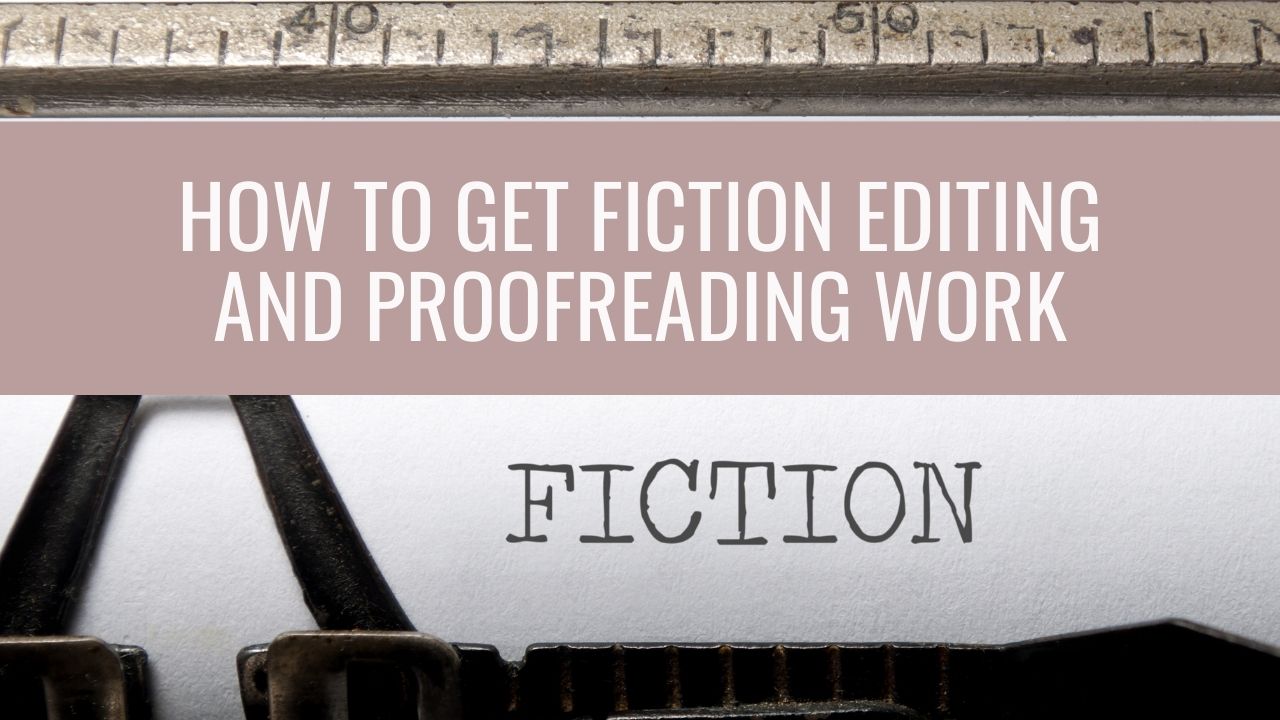
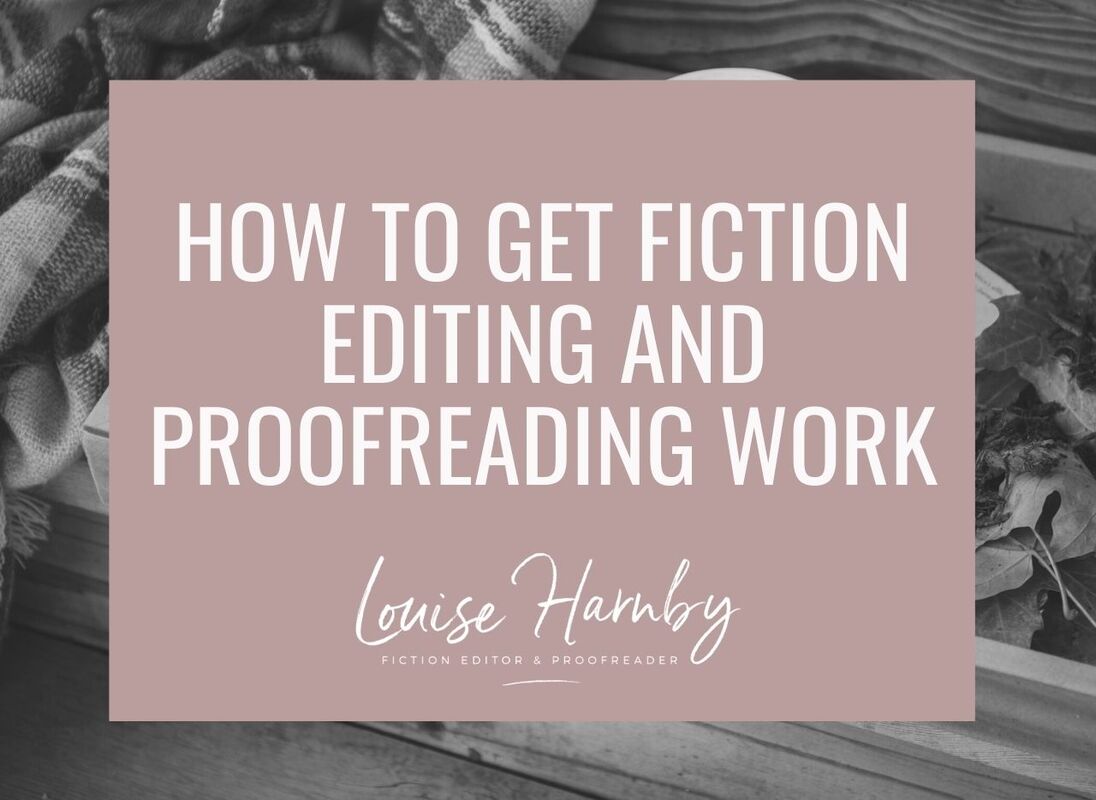




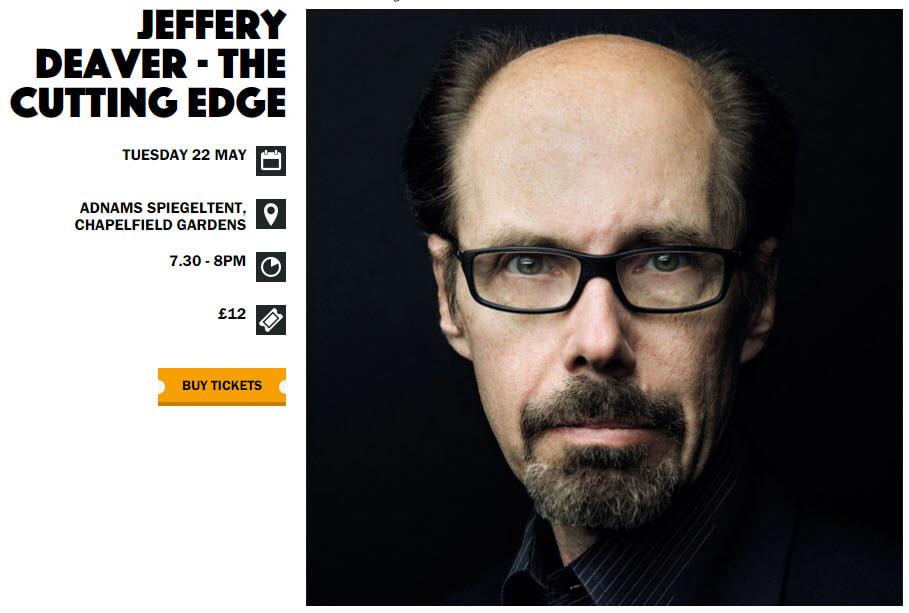



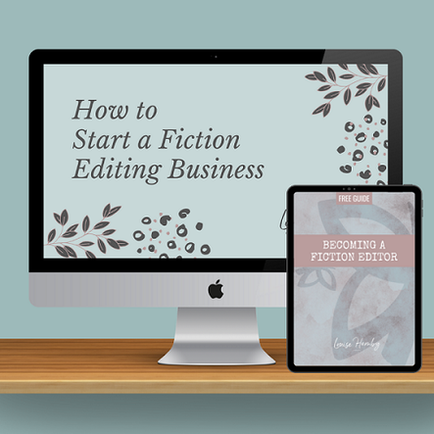
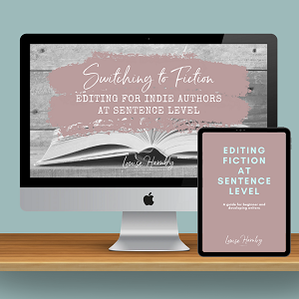













 RSS Feed
RSS Feed





